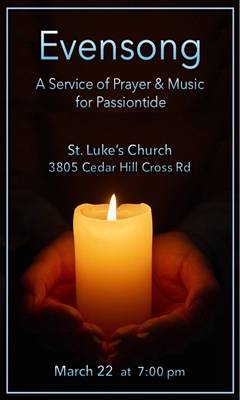This article addresses sexual misconduct and abuse within the church.
On Ash Wednesday, March 2, a letter appeared online from a group called #ACCtoo. The letter details allegations that a senior official in the Anglican Church of Canada (ACC) breached the confidentiality of three survivors of sexual abuse perpetrated by clergy in the ACC.
The letter details how, in February 2021, the three survivors shared their experiences with journalists at the Anglican Journal who were preparing an article on sexual misconduct in church institutions. The survivors shared their experiences on condition that their identities would remain anonymous.
However, an early draft of the article and, later, a list of the four church institutions involved in the allegations, were shared with the Council of General Synod (CoGS). According to the #ACCtoo letter, the draft named one of the survivors and included enough background detail on the other two survivors that they were identifiable. The #ACCtoo letter also notes: “We believe that the AJ staff provided this list under duress, and only after being assured the draft would not be circulated to the four institutions involved.” However, the draft was then shared with the four institutions. In June 2021, two staff members at the Anglican Journal, editor Matthew Townsend and staff writer, Joelle Kidd, resigned because of this issue. Their departure was announced on the Anglican Journal website in September.
The letter attributes this breach of confidentiality to the changes to the Anglican Journal passed by CoGS on March 15, 2019. These changes saw the amalgamation of two committees, including the Anglican Journal Coordinating Committee, to form the Communications Coordinating Committee. The Terms of Reference for this new committee included “oversight of the content and distribution of the Anglican Journal.” There were also changes to the mandate of the Anglican Journal and an editorial board was established to oversee the Journal. This board would include at least one member from the Communications Coordinating Committee.
The #ACCtoo letter closes with three demands: “1. Release the unredacted findings of the investigation to a representative chosen by the survivors; 2. Require the resignation of the ACC church official who circulated a draft of the Anglican Journal article to four institutions outside the General Synod office; and 3. Submit an apology for publication in the Anglican Journal that summarizes the investigation report, confesses wrongdoing, and presents a plan of action that is a worthy beginning of repentance.”
Following a CoGS meeting from March 10–13, 2022, in which the #ACCtoo letter was discussed, CoGS published a statement on the ACC website. The statement addresses and includes recommendations on journalism and the management of the Anglican Journal, the handling of complaints and accusations of sexual misconduct within the church, systemic and structural issues, and reconciliation.
The CoGS statement addresses the report of the independent investigation that was solicited by ACC and which is referenced in the first demand of the #ACCtoo letter. The statement states that the primate has offered to meet with the three survivors and a “mutually agreeable facilitator” in order to share the full report, “with appropriate mutual assurances of privacy and confidentiality.” In response, the authors of the letter state that the stipulation for the survivors to meet with a church leader and provide assurances of confidentiality before being able to see the report is “inappropriate.”
The statement also offers an apology to the three survivors and references an apology already offered by the primate. In response to the statement, the letter co-authors write that “it remains unclear who precisely is apologizing, and for what” and they reiterate their demand for “a public apology that takes personal responsibility and confesses wrongdoing with specificity.”
The statement does not directly address the second demand of the letter.
On March 15, a response from Archbishop Linda Nicholls (dated September 2021) to the independent investigation report was appended to the CoGS statement. Referring to the draft article, Archbishop Nicholls stated that “[b]elieving it was a penultimate draft, it was shared by the General Secretary with dioceses/institutions reflected in the article.” However, on March 23, a statement from the general secretary, Alan Perry, was also appended to the CoGS statement. In Mr. Perry’s statement, he writes: “Regardless of the circumstances, it happened on my watch.”
The following day, on March 24, the #ACCtoo website posted a video from one of the survivors, Cydney Proctor (who has openly signed the #ACCtoo letter and identified herself as one of the survivors), in which she states that several sources have confirmed the Anglican Journal editorial board received an unredacted copy of the investigator’s report, which contained an appendix identifying her perpetrator and details of her story. The CoGS statement reads, “CoGS is assured that the written report of the independent investigator deals entirely with journalistic matters, and says absolutely nothing about the circumstances of the original complaints by the individuals.”
The open letter was penned by Michael Buttrey and Carolyn Mackie, PhD candidates at the Toronto School of Theology who, according to the #ACCtoo website, have presented case studies of sexual abuse at scholarly conferences and are part of a research project on responses to sexual abuse within theological institutions. So far, the letter has received over 300 signatures. A handful are from the diocese of British Columbia, including the diocese’s director of communications, Catherine Pate.
When asked why she signed the letter, Pate said, “I stand with victims of abuse by and in the church; those in this specific case and those throughout our history and in our future. Words are not enough. We know better, or we ought to know better. Naivety and ignorance can no longer be our excuse, especially when we repeat the same egregious injustices. Justice must be done, and it must be seen to be done.
“This is not a case of well-intentioned people making well-intentioned mistakes. The facts don’t bear that out. Furthermore, we must recentre this process on the victims. They have repeatedly put their trust in this institution, and they have repeatedly been failed by it, at great personal cost. The focus must be on what the victims require of us, not what we are prepared to offer. If we can’t get this right, how can the work of reconciliation we say we are wholeheartedly committed to be seen to have any integrity? I believe this case has widespread implications for the Anglican church across this country.”
On March 28, the #ACCtoo website published a statement by Matthew Townsend, editor of the Anglican Journal at the time of the breach, and a copy of his resignation letter. He writes, “The survivors have spoken. It is long overdue for the church to hear them — and to hear the countless survivors who have experienced trauma inside of unsafe churches.”




